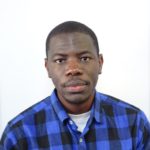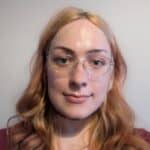-
Asked by jenanA on 25 Sep 2025. This question was also asked by Master Iysa, caph532teas76, cadepact563pact4, card532gage25, yodh532duds58.
-
Niamh Topping answered on 25 Sep 2025:
That’s a good question! I think all scientists will have a different answer to that. For me, I would say when I started doing research projects at University, so in my 3rd and 4th years of my degree (my degree was a total of 5 years, longer than normal as I went to the Netherlands for a year and I was doing a Masters course). I think every scientist will also say that you never stop becoming a scientist! Because you’re always learning new things.
-
-
Emily Walls answered on 25 Sep 2025:
A lot of people have different opinions of when they class themselves as a ‘scientist’. For a long time my dream was to be an astrophysicist, and I was unsure at what stage I could call myself that! I remember when I went to a conference; in my third year of university, I spoke to a girl slightly older than me and she said, ‘I call myself an astrophysicist because I do science and research day in day out – why shouldn’t I call myself that?’ which really stuck with me! So going off that definition, probably since my third year of university when I started to do group research projects, science is a process of learning, doing, and trying again, so I think a lot of people don’t think of themselves as a scientist until a lot later on, but I think it starts earlier in your career!
-
Kevin Burke answered on 25 Sep 2025:
I wanted to be a scientist from the age of about 16, and studied science/maths based A Levels, and then a Physics degree, so after 3 years of study I called myself a scientist. However, I then discovered the world of engineering, and went into an aerospace engineering career ( after a 12 month ‘conversion’ course!). I still used my science education every day, as that forms the base of much engineering work. You don’t have to work in science to be a scientist
-
Kirsty Lindsay answered on 25 Sep 2025:
I didn’t have a “standard” journey, so mine took 13 years: 3 years for undergrad, 1 year back at work, 1 year Master’s, 2 years back at work, 6 years for PhD.
-
Vicky Fawcett answered on 25 Sep 2025:
I did 4 years studying maths and physics at University and then spent 4 years doing a PhD (a long research project) in astronomy.
-
Pete Webb answered on 26 Sep 2025:
I did a 3-year BSc degree mainly in geology but also chemistry and maths, after which I was entitled to apply to become a Fellow of The Geological Society and therefore a Professional Geologist. I also did a PhD, which took 4 years, mapping rocks in Kenya then analysing them and writing about them.
-
Martin McCoustra answered on 26 Sep 2025:
I guess that could be considered the end of my PhD… It took me 7 years (4 for my BSc and 3 for my PhD) to get to the stage of being an independent scientist and doing my own thing in science. But I would say I’m still learning to do science!
-
Caroline Mullen answered on 1 Oct 2025:
There isn’t one answer to this, I know people who have got science jobs right out of school, I did a degree, then did various science jobs, then a PhD, became a science teacher after that, but then went back to being a scientist. So it is a round-about journey! So after 4 years I did science, but not the type of science I wanted to, I got to do that after about 14 years!
-
Andreas Korn answered on 9 Oct 2025:
Hi,
I’d say it’s a process that never really ends. You always keep learning.
Which I think is one of the exciting things in science!
Formally it depends on the job afterwards. I went the full academic route
(Bachelors, Masters and PhD) but there are exciting scientific roles that are shorter.
Just two possible examples:
https://nationalcareers.service.gov.uk/job-profiles/forensic-scientist
https://nationalcareers.service.gov.uk/job-profiles/laboratory-technician -
Julie Willecomme answered on 3 Nov 2025:
A key scientist quality is curiosity. If you are curious, you’re half way there. As for the qualifications it can go from apprenticeships all the way to university degrees, PhDs and post docs. There’s a path for everyone!
-
Ryan Ellison answered on 26 Nov 2025:
I think the first time that I really considered myself a scientist was when I was studying for my PhD. This was the point at which I got to ask my own research questions for the first time, to try and understand things that no one has asked before!
To get to my PhD, I completed high school (6 years) then sixth form (2 years) and university (4 years).
However, I would say that anyone with an interest in science can consider themselves a scientist!
-
Asked by jenanA on 25 Sep 2025. This question was also asked by Master Iysa, caph532teas76, cadepact563pact4, card532gage25, yodh532duds58.







Comments